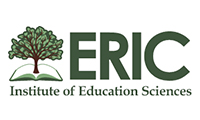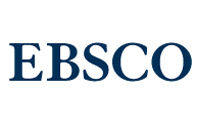Notes for Authors
Manuscript Submission
In Educational Sciences: Theory & Practice (ESTP);
- Articles are published only in English. Authors requested to submit article in English language only.
Contributors submitting their work to ESTP should be informed that articles should include the following:
- High quality quantitative, qualitative, or mixed research methods,
- Comprehensive literature reviews, meta-analysis, or meta-synthesis,
Editorial and Review Process
ESTP gives priority to current studies using advanced research and statistical methods and techniques. The Journal’s main criteria for publication are original contribution to the field and high methodological standards.
Manuscripts are first assessed by the Editorial Board for purpose, topic, content, presentation style, and writing. During this preliminary assessment, the Editorial Board guidelines are as follows:
For Studies Developing and testing properties of a Measurement Tool
Authors are required to base the tool on a thorough literature review. Constructs need to be explicitly defined and items developed and tested with the highest methodological standards. For new instruments, exploratory and confirmatory factor analyses are required. For validation studies in a new context, translation and back-translation (if applicable) are required, together with confirmatory factor analyses. For all the studies, validity and reliability need to be tested.For Experimental Research (experiments and quasi-experiments)
Authors are encouraged to submit experimental studies to the journal, especially Randomized Controlled Trials. All the studies need to control confounding variables. Randomization is highly valued. Experiments need to compare a control group and experimental group, at least at post-test. Quasi-experiments are required both, pre-test and post-test. Effect sizes need to be reported.For cross-sectional and longitudinal descriptive studies
Most of these studies are conducted with a survey. Measurement instruments need to be validated and show high reliability and validity. These studies need to be conducted with large and ideally representative samples. Univariate and multivariate analyses are recommended. Implications for educational theory and practice need to be clearly stated.Systematic reviews and meta-analyses
Authors are encouraged to submit systematic reviews on topics related to education. These need to be conducted with comprehensive searches, clearly stated inclusion and exclusion criteria, and rigorous coding. Meta-analyses containing overall effect sizes are especially valued.Editorial and Review Process
- Manuscripts are assigned a reference code and recorded in our system.
- After the submission, authors are sent a confirmation of receipt by email.
- Manuscripts are evaluated by Editor in Chief in relation to the scope of the journal and methodological standards.
- Manuscripts that meet the criteria for ESTP proceed to the next stage where they are assigned an Associate Editor and forwarded to peer review.
- Manuscripts that do not meet the ESTP criteria are notified of the decision with the relevant justification for rejection.
- Manuscripts are sent to two specialists in the relevant field.
- If the reviewers differ in opinion about the quality of your work, the paper will be referred to a third reviewer.
- Reviewer identities are kept confidential. We adopt a double-blind peer-review evaluating process.
- There are three possible results for a manuscript:
- Accept
- Reject and Resubmit process
- Reject
- If the decision is “revise and resubmit”, authors are required to revise their manuscript according to the suggestions made by the reviewers and the Editor.
Manuscripts go through the following stages once accepted for publication:
- Articles are sent to production.
- Authors receive the proofs of the articles.
- Following the pagination process, authors are asked to conduct a final check of their manuscripts.
Indexing




